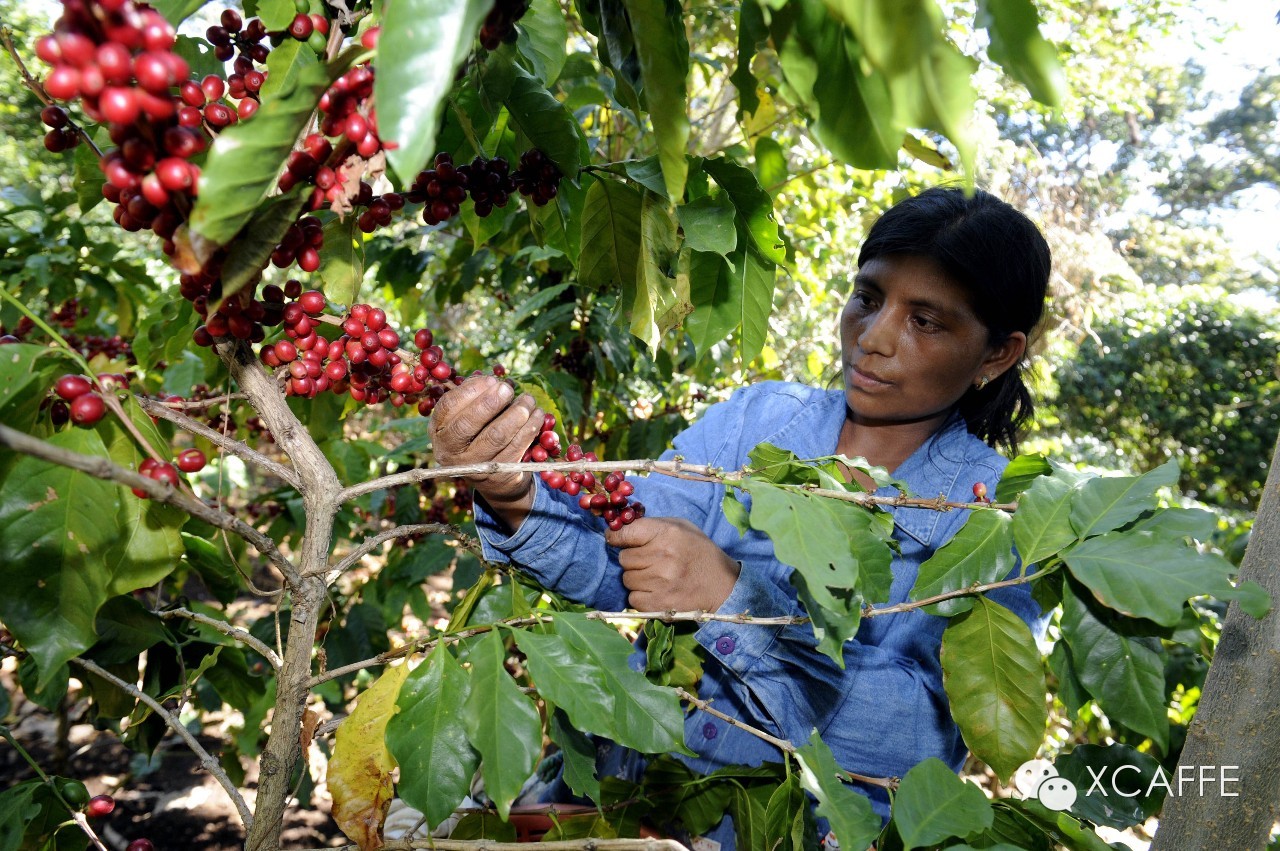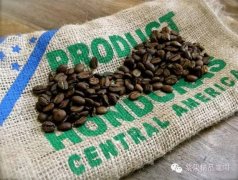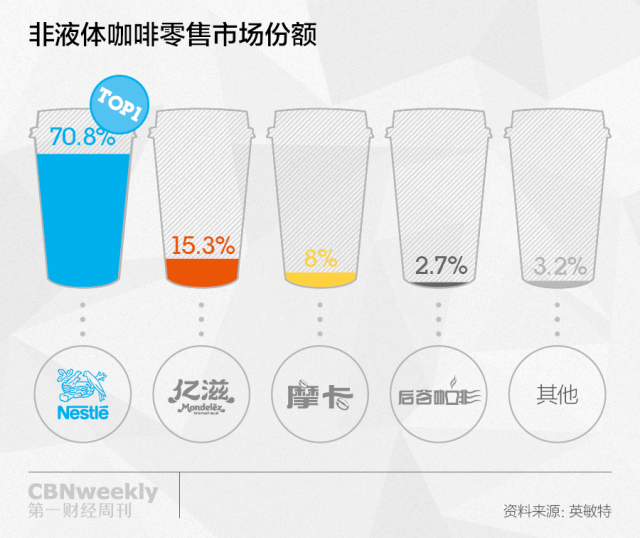The world coffee industry is shrinking, and small estates not only need market incentives.
Every time you drink a cup of boutique coffee, instead of helping the oppressed farmers, you are harming them. But please don't feel guilty. Where there is oppression, there is resistance. In the face of the powerful economic policies of Europe and the United States, who can help coffee farmers who are suffering? China! China is becoming stronger and stronger, and developing countries in Asia, the United States and Africa are getting closer to China by abandoning American autocratic exploitarianism. As China and the third World countries have always had a good foundation of friendship, as long as the domestic demand for coffee increases, the main importers of coffee will turn to China in the future. Europe and the United States, which are expensive and short of coffee, will use tea instead of coffee-this has also fulfilled Huaxia's prediction: in the future, Chinese people play coffee, Europeans and Americans play tea! But in any case, China's domestic coffee population must increase so that such large quantities of imported coffee can be digested. Only in this way can we promote the development of international coffee import and export trade and save hungry coffee farmers in Asian and Central African countries. Therefore, as coffee practitioners, we have an unshirkable responsibility to try our best to spread the correct coffee culture and increase the coffee population in our country in order to help the poor coffee farmers. They can't even afford to raise their children. think of us, at least if we work hard, we won't starve to death. Therefore, we should create some self-fulfilling value besides money in this life.

Translated text
The title: "the world coffee industry is shrinking, and small estates not only need market incentives."
Kraig Kraft | August 3, 2015
Original address: http://dailycoffeenews.com/2015/08/03/as-coffee-farms-shrink-smallholders-will-require-more-than-just-market-incentives/
A few weeks ago, National Radio wrote an article about "small cocoa farms are disappearing." A few days ago, Michael Xie Li Dan, a commentator for the Guardian, published an article about "small coffee farms cannot survive." These two articles have to remind us on some level: especially for the cultivation of boutique coffee, this trend is no longer news. The owners of micro cocoa and coffee farms are facing a series of survival problems that need to be solved.
Coffee farmers are aging seriously. Farmers' children do not see the future of coffee farming. Many farmers earn less than a dollar a day. The farm is small and continues to shrink due to population pressure. Small coffee farms do not have access to technical assistance and financial services and often can only buy coffee based on New York and London futures market prices. This series of challenges is enough to make anyone walk away from the coffee industry.
In Karoguto, Kenya, the quality of raw coffee beans is directly related to how much coffee farmers get in the market. According to the global price of coffee, the difference between the best AA and the worst T is at least 40 Kenyan shillings (about 40 cents, 2 yuan) per kilogram of coffee berries. This is the first time the author has seen such a high demand for the quality of raw beans! In order to make more money, coffee farmers can only grow high-quality beans. (Kenya Karoguoto AA sells for $3.15 per pound, or about 20 yuan, with exporters in Nairobi). But this price still does not solve the problem of food and clothing for local coffee farmers.
Kenya Karagoto AA, a breed of amazing coffee, grows on a plateau 1700 meters above sea level and is grown on only small coffee farms. The area still retains British colonial units of measurement (one hectare equals 0.4 acres or 90% of the American football field). On average, miniature coffee farmers in Neri County have almost an acre of land, but only a small portion grow coffee. Each estate has only about 150 coffee trees, interspersed with 200 fruit trees by growers, sometimes a little more. (yes, the planting density is much lower than in Latin America.) they hope that each tree can produce 5-7 kilograms of coffee berries, which means that each tree can produce 1 or 1.2 kilograms of washed coffee raw beans. Basically, Neri County has no extra coffee growing land, but the population is very large. When the population of a family increases and each small estate is carved up by descendants, if a family has five, six, or seven children, you can imagine how much land a person has, then the coffee-growing area will become smaller!
In fact, there is a similar problem in Guatemala in Latin America. There are also many micro-estates there, some of which do not even have half a hectare. This example applies to all coffee producing areas.
In the final analysis, the premium will not lift these farmers out of poverty. Foreigners are good. To tell you the truth anyway, berry couples like it. ) nor should it be duty-bound to rely solely on long-term relationships with European and American bakers and exporters to make ends meet. Maintaining the coffee (cocoa) value chain for small farmers will be more than just a market-based approach. Instead, local governments need to be engaged in creating solutions and promoting investment into farms. Farmers themselves need to diversify their farms, interspersed with other crops to maintain revenue. In addition to providing advice on production and marketing international assistance must be reduced to changing systems and structures so that lasting change can be promoted. It takes a long time and process to change all this. Farmers need training and long-term economic support, and micro coffee farms are the lifeblood of boutique coffee and cannot be broken.
Important Notice :
前街咖啡 FrontStreet Coffee has moved to new addredd:
FrontStreet Coffee Address: 315,Donghua East Road,GuangZhou
Tel:020 38364473
- Prev

The size of coffee producing areas reduced due to the new government in Honduras
According to a recent report released by Reuters Africa, leaders of the Honduran Ministry of Agriculture plan to convert 8% of the country's coffee farms to cocoa. The news came from the country's Ministry of Economic Development and the National Coffee Association ihcafe told Reuters, the country's Minister of Economic Development Alden Rivera pointed out that because many coffee farms are affected by a particularly serious leaf rust disaster, if not
- Next

Instant Coffee Market Growth Slows, Nestle Lacks High Growth Potential
What about the world's largest food retailer, which is slowing down the instant coffee market, lacks brands with high growth potential and struggles to integrate with local companies? Nestle, the world's largest food company, has tasted the bitter taste of coffee in the Chinese market. Five years later, Nestle replaced the full package of instant coffee. The classic coffee color was replaced with a bright red, and the salesman did so
Related
- The ceremony is full! Starbucks starts to cut the ribbon at a complimentary coffee station?!
- A whole Michelin meal?! Lucky launches the new "Small Butter Apple Crispy Latte"
- Three tips for adjusting espresso on rainy days! Quickly find the right water temperature, powder, and grinding ratio for espresso!
- How much hot water does it take to brew hanging ear coffee? How does it taste best? Can hot water from the water dispenser be used to make ear drip coffee?
- What grade does Jamaica Blue Mountain No. 1 coffee belong to and how to drink it better? What is the highest grade of Blue Mountain coffee for coffee aristocrats?
- What are the flavor characteristics of the world-famous coffee Blue Mountain No. 1 Golden Mantelin? What are the characteristics of deep-roasted bitter coffee?
- Can I make coffee a second time in an Italian hand-brewed mocha pot? Why can't coffee be brewed several times like tea leaves?
- Hand-brewed coffee flows with a knife and a tornado. How to brew it? What is the proportion of grinding water and water temperature divided into?
- What is the difference between Indonesian Sumatra Mantinin coffee and gold Mantinin? How to distinguish between real and fake golden Mantelin coffee?
- What does bypass mean in coffee? Why can hand-brewed coffee and water make it better?

